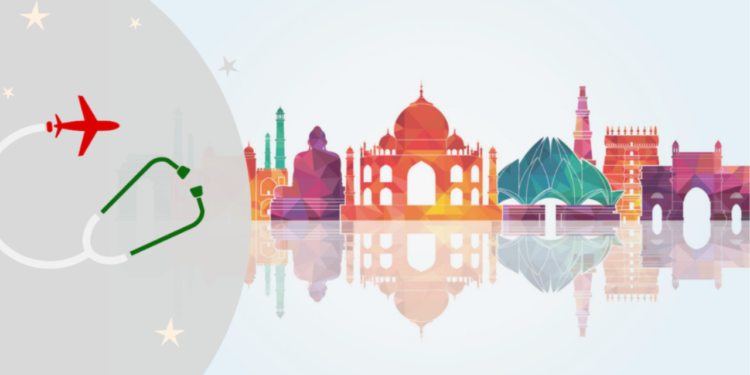Originally, the word referred to patients traveling from less-developed countries to developed countries in search of treatments that were not available in their home country. Today, we’re seeing both qualitative and quantitative trends in patient mobility, as people travel from more developed to less developed countries to receive health care. The fact that people frequently stay in a foreign country after undergoing medical treatment is what genuinely puts the word “tourism” in the medical tourism notion.
According to the 2015 medical tourism market study, India is the most popular destination due to the highest quality treatment at the lowest cost. India’s medical tourism industry was estimated to be around $3 billion in October 2015, and It is expected to be worth $9 billion this year.

By 2020, it is expected to account for 20% of the medical tourism sector. The majority of the visitors are from Asian and African countries. People from so-called bubble countries like the United States, the United Kingdom, and Australia make up a small percentage of the population. According to data, approximately 697,453 foreign visitors visited India for medical treatment in 2019.
Many of the countries approached for treatment are in the process of developing. Medical tourists travel to these countries for a variety of reasons, including access to cutting-edge medical technology, high-quality service, and health insurance portability. Treatment costs may be significantly higher in many developed countries. Sadly, due to the coronavirus epidemic, which resulted in lockdowns and airline cancellations between different Asian and African countries, this number decreased.

However, the total visitor influx is presently progressively increasing. Soon after the COVID-19 outbreak, India was able to create its own vaccine to combat the pandemic rather than importing it from other countries. This demonstrates India’s progress in technologies and genetic sciences thus far. While other nations have complicated visa procedures, India is constantly attempting to streamline and optimize the process, allowing more global medical tourists to enter the country.
There are more than 500 recognized healthcare providers in India. With the aid of cutting-edge technology, the country also provides world-class and standardized medical services and care. Patients can use a variety of therapies, such as Ayurveda, Naturopathy, and Yoga, to help them recover.

Another important feature that makes India an appealing medical tourism destination is the presence of English-speaking doctors, which lowers the language barrier for foreign patients.
Sadly, due to the coronavirus epidemic, which resulted in lockdowns and airline cancellations between different Asian and African countries, this number decreased.

However, the total visitor influx is presently progressively increasing. Soon after the COVID-19 outbreak, India was able to create its own vaccine to combat the pandemic rather than importing it from other countries. This demonstrates India’s progress in technologies and genetic sciences thus far.
Also Read: 5 Food Tips To Reduce For Ladies With PCOS






















